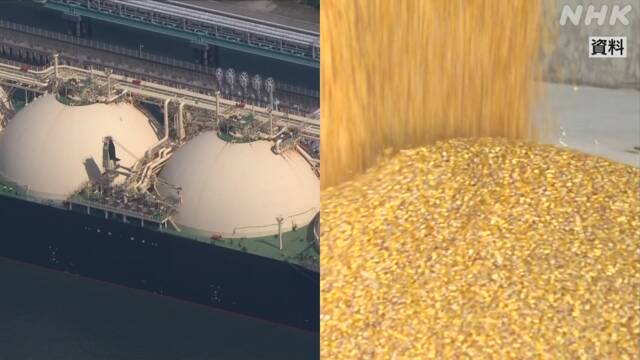Russia's military invasion of Ukraine poses a major challenge to European countries that depend on Russia for much of their energy.
The EU-European Union depends on Russia for 40% of its natural gas imports, and there are concerns that the impact will spread as the Russian side cuts supply against economic sanctions imposed by the West.
In Europe, the rise in prices has already become a major issue, with consumer prices in the euro area reaching a record high of 5.8% in February. It could have a further impact on people's lives and the economy.
After the military invasion began, the EU held an urgent meeting of ministers on the 28th of last month to discuss the current situation and future outlook for energy supply.
Some have pointed out the need to diversify energy sources, while saying that there will be no shortage of natural gas in the short term.
In addition, the IEA = International Energy Agency said that Russia's dependence on gas should be reduced by the next winter, and will not sign new contracts with Russia or find sources other than Russia in the future. We announced 10 items of recommendations.
The recommendations include accelerating the spread of energy conservation and renewable energy, as well as maximizing the use of nuclear power generation, and these efforts will reduce imports from Russia by more than one-third. ..
Accelerating movement to procure gas from European countries other than Russia
European countries are accelerating the movement to procure gas from other than Russia from the viewpoint of energy security, and the tension in the situation in Ukraine has increased. It has increased about 4 times compared to.
At the port of Rotterdam in the Netherlands, which is the largest in Europe, the number of tankers loaded with LNG is increasing, and about 60 tankers arrived in the two months until the middle of last month, which is half of the last year. ..
A person in charge of the public corporation that manages the port said, "It's the busiest ever."
In addition, Germany, which has relied on imports of most of its natural gas from Russia through pipelines, hastened to take measures such as deciding to build an LNG receiving terminal that had never existed in Japan in order to accelerate "de-Russia". increase.
Europe's natural gas stockpile is currently less than 30% of its total capacity, but many of the approximately 20 LNG receiving terminals in Europe are at near full capacity and can be increased at once. Not having it is also an issue.
Concerns about rising grain prices at agricultural events in Paris
At an agricultural event held in Paris, France, there were concerns about rising energy and grain prices due to the military invasion of Ukraine.
Ukraine is a producer of compound feeds that are sources of protein such as wheat and corn, as well as cows and pigs, and according to pork producers, many French producers are dependent on it.
However, due to the military invasion, the price per ton of wheat has risen nearly 1.3 times, and the price of feed has also risen due to supply instability, and the increase in costs has become a burden on producers.
"Wheat and corn prices have been rising since last year, and the situation in Ukraine is pushing it further and putting pressure on producers," said Thierry Mayer, chairman of the pork production group.
Soaring energy prices are also accelerating the rise in agricultural production costs, and the Macron administration plans to support agriculture and other related industries in order to reduce the burden on farmers.
Experts There is a possibility that there will be a shortage of about 15% of gas in Europe as a whole.
Georg Zackman of the Bruegel Institute said that if Russia's supply of gas is cut off for a long period of time, there could be a shortage of about 15% of demand across Europe next winter. I am.
"How to sustainably fill the 15% gap is an important issue for the EU," said Georg Zackman. "In terms of demand, it will be necessary to reduce gas usage in industry and at home. Also, how to share the burden fairly and distribute gas between European countries and different industries is a big political issue. "
German Chancellor seeks understanding from Russia to continue energy procurement
German Chancellor Olaf Scholz issued a statement on the 7th, pointing out that there is "there is no other way to secure energy for heating, power supply, and industrial use at this time," and will continue to procure energy from Russia for the time being. I asked for your understanding.
The German government, along with partners such as the EU = European Union, is making every effort to secure energy from outside Russia, but says that "it cannot be done overnight."
Germany has strong energy ties, such as relying on Russia for about 55% of its natural gas imports.

